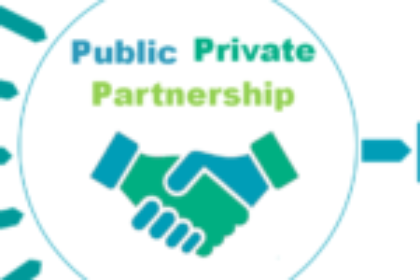
In developing countries, the private sector becomes more critical because, with limited resources, such countries struggle to ensure proper health care for everybody. Private sector, similar to other countries, brings technology, innovation, financing, and most importantly, additional health workforce – areas that public sector has always been struggling.
However, issues including high cost and centralized/urban location raised concerns regarding equity in access to private healthcare services by the poor and underprivileged service recipients in the country.
That is why the public-private partnership can offer new opportunities by sharing risks, resources, and finance to provide healthcare services under certain conditions. A combination of the positive aspects of both private and public sector could address the situation by expanding the service coverage and increasing equity, which could be brought in through approaches like Public PPP.
In spite of being one of the most populous countries in the World, the improvement of Bangladesh in Health, Population and Nutrition (HPN) sector is quite remarkable.
The country achieved its Millennium Development Goals (MDGs) related to HNP well ahead of the stipulated time and now aiming towards achieving Universal Health Coverage (UHC) by 2030. Under 5 child mortality dropped from 49.4 in 2010 to 34.2 in 2016 (per 1,000) and infant mortality reduced from 37.4 percent to 30.5 percent in the same period.
Two-thirds of the total health expenditure in the country still comes from the recipients as Out of Pocket Expenditure, with government contribution is only one third. Only 2.64 percent of GDP is spent for healthcare, which is one of the lowest in South Asia. Under this scenario, the contribution of private sector in terms of increasing coverage of health services is commendable, as evident from the fact that availability of hospitals beds in private sector (87,610 in 2017) is almost twice than that of public sector (49,414 in 2017), as specified in Health Bulletin, 2018.
ARK Foundation condcuted a study to find out the possibilities, scopes and challenges of public-private partnership (PPP) which will inform a guideline to design and implement such collaboration to improve access to and quality of health.
A mixed-method approach was followed for the study combining desk review, case studies and qualitative data analysis.The findings in this report are generated from shreds of global, regional and local evidence obtained from the desk reviews, observations from the case study and qualitative data from the interviews and group discussions.
Also, feedback from the technical and dissemination workshops are incorporated in the report. All of these informed a policy matrix for publicprivate partnership in health. Potential scopes of PPP in health lies in terms of extending the time of public healthcare services, minimizing the cost of the overall treatment and enhancing the capacity of healthcare providers and managers.
For the health sector, the government can implement PPP either by hiring private organizations, purchasing services or outsourcing or contracting doctors.Contracting out the underutilized health facilities (such as 10/20 bedded hospitals) and robust referral system (such as through general practitioners recruited by the government) can help expand health service coverage in the country.
Partnering with private entities to provide healthcare services to hard-to-reach areas, generic drug production and introducing health insurance can increase equity in health. PPP can also be introduced in case of the ambulance, security, laundry, cleaning and waste management service in the public healthcare facilities, diagnostics, dialysis, imaging, emergency services and capacity development of service providers.
Proper implementation of PPP in health requires to have an enabling environment at the policy level. Such an enabling environment can be facilitated by having a PPP guideline for health sector and a legal framework for private partners considering the alignment of values between the public and private sector. Also, institutional capacities in the form of training or guideline in the relevant sectors for the key actors are essential.
In the whole process of implementing PPP in health, conflicts of interests must also be carefully considered to not only ensure transparency but also make it scalable and sustainable. Furthermore, PPP must not lead to any market distortion because of the collaboration but instead encourage competitive health market in the country.
The findings in the study brought out a series of recommendations and strategies that need to be taken into account for considering successful PPP in the health sector in Bangladesh. Firstly, the formation of a technical committee with relevant stakeholders in the ministries and its involvement, leadership and guidance will ensure coordination in the process, which is currently missing.
A comprehensive guideline for PPP in health needs to be developed by the ministry of health that can guide both the technical committee and key stakeholders. With the existence of a leading entity and a guideline, relevant stakeholders in both public and private sector can be sensitized through workshops.
These workshops can then help to prioritize the service domains where PPP should be considered and explored. Rest of the steps from identifying potential private entities to implement and monitor the PPP projects should be followed as per the guideline and recommendations from the technical committee.
Achieving universal health coverage by 2030 requires a positive transformation in the health sector. New, innovative, successful and evidence-based approaches through public-private partnerships can pave the way towards achieving the short-term and long-term goals in the health sector and ensure health for all.
Authors: Rumana Huque, PhD, Sushama Kanan, Zunayed Al Azdi

